
Users hate popups. But they really hate mobile popups. They are annoying, inhibit the user experience, and can cause serious user frustration. But mobile popups can also cause problems from an SEO standpoint.
First, Google has a mobile popup algorithm that can demote pages using an interstitial or popup when users visit from the search results. In my testing, it’s been a pretty weak algorithm, but it’s still there (and the strength could always be increased at any point).
Examples of annoying mobile popups. Just try to find the content…

Second, John Mueller has explained that Google could see a popup as the main content on the page. That could be a serious problem, as Googlebot could simply index the content in the popup as your primary content for the url at hand. That can be problematic quality-wise, as the content will clearly be suboptimal (it’s the popup being indexed!)
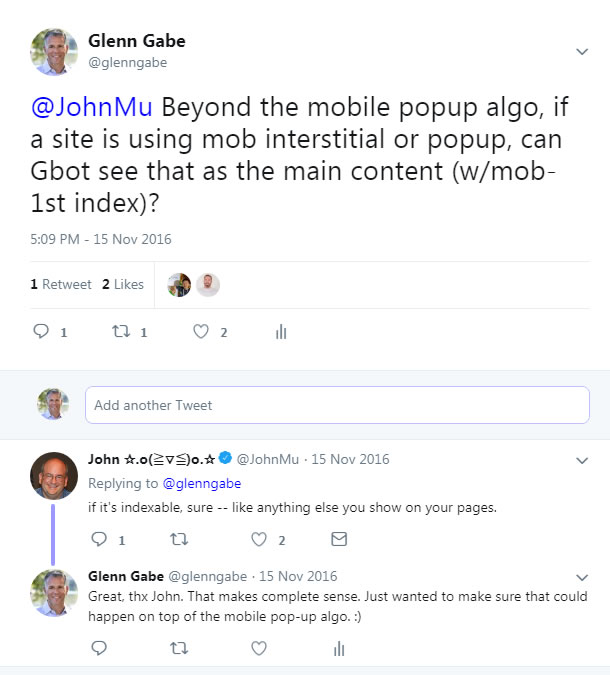
Third, and more related to monetization, mobile popups violate the Better Ads Standards. That means Chrome could end up blocking ALL advertising on your site (if it’s a widespread problem). I wrote a post covering examples of Chrome blocking ads and you should read that article if you are wondering how it works and what it can look like.
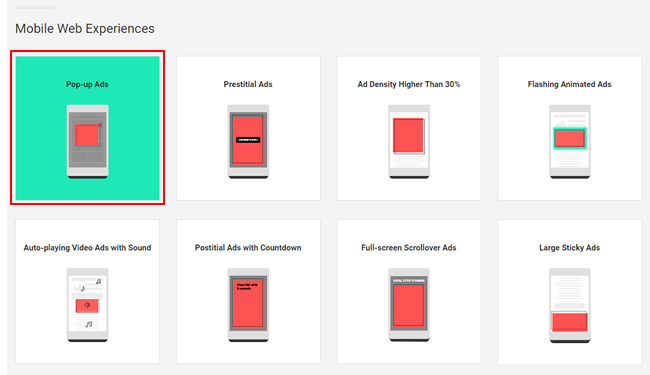
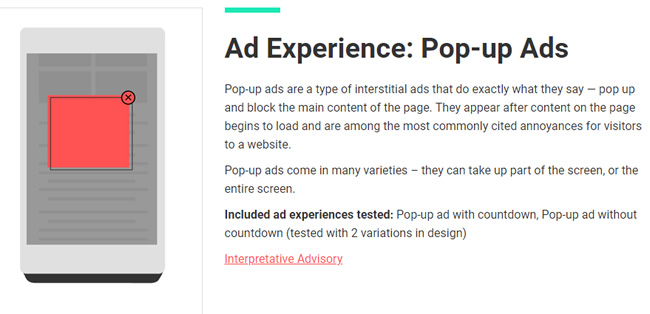
So, we have a quadruple whammy when mobile popups are being employed (which includes user experience, SEO on several levels, and monetization). But the situation could be worse, and more sinister… One where a site owner has no idea that mobile popups are even being triggered for Googlebot. And maybe it’s across thousands, tens of thousands, or even more pages. Well, that’s exactly the situation I came across recently, and it’s what I’m covering today.
I think it’s important to cover this case since other sites may be experiencing the same situation. And if they are, they might be able to quickly implement changes to rectify the problem. This case study is a great example of how technical problems could cause big SEO problems. Read on.
The situation: Sinister mobile popups invisible to the ‘cookied’ eye
I’m helping a site now that has been hit a number of times over the years by major algorithm updates. It’s a large and complex site with many moving parts. There are millions of pages indexed, and the site has a number of issues that run the gamut of SEO problems, including quality, technical, advertising, UX, and more.
During my audit (which is still ongoing), I started digging into a specific area of the site and loaded a page on desktop. When visiting one of the pages, I noticed a strange lag when the content was loading. Some of the page content was being loaded via JavaScript and the lag I saw just seemed odd, so I decided to take a closer look.
Once the page fully loaded, it looked fine. The content was loaded properly, canonical tags were correct, images were fine, etc. But that lag really bothered me, almost like there was some glitch in the matrix.

So I decided to run a battery of tests on the page type, including checking page renders, measuring page speed, checking mobile-friendliness, as well as crawling a number of urls from that section. And what I found shocked me… and it was sinister.
Popups were only triggered on mobile, and only when cookies weren’t used
After checking the desktop pages quickly in Chrome, I started loading the pages via mobile. I first did this by opening a new tab and checking via Chrome dev tools. I was cookied by the site already (based on working on the audit), so nothing really stood out. The page looked fine.
But when I checked pages in this section incognito, the situation radically changed. I was hit with a mobile popup asking me to set my location. And it covered the entire screen. I tested several more urls and saw the exact same thing. It’s also important to note that I had never seen this popup before during the audit (so I had never set my location). I was cookied by the site, but not via information I set via this popup.
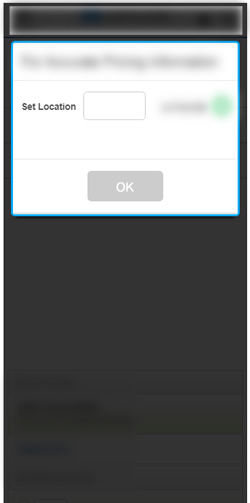
If you just checked the pages manually (and while you were cookied), the pages would load fine. But for first-time users, or incognito without a previous cookie set, the site smacks you in the face with a giant mobile popup. And this was happening on thousands of pages across the site (and possibly more). I’ll cover more about that soon.
For my client (including the team of people I’m working with), they were already cookied, so they were seeing the pages load fine in the sections that were impacted (and not the popup). But remember, Googlebot doesn’t accept cookies, so it has been seeing the mobile popup for some time. Not good.
Here is John explaining more about Googlebot and cookies:

Fetch as Google + The *New* Mobile-friendly Test
Knowing that the mobile-friendly test renders content via Googlebot for Smartphones (and now will render JavaScript), I quickly tested some urls. And boom, the mobile popup was present.
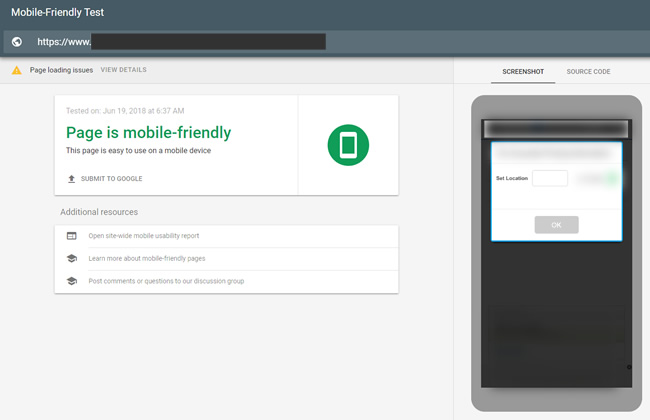
And then I hopped into Google Search Console (GSC) to test the urls using fetch as Google (to render the content on both desktop and mobile). As you can guess, the mobile popup was there too.
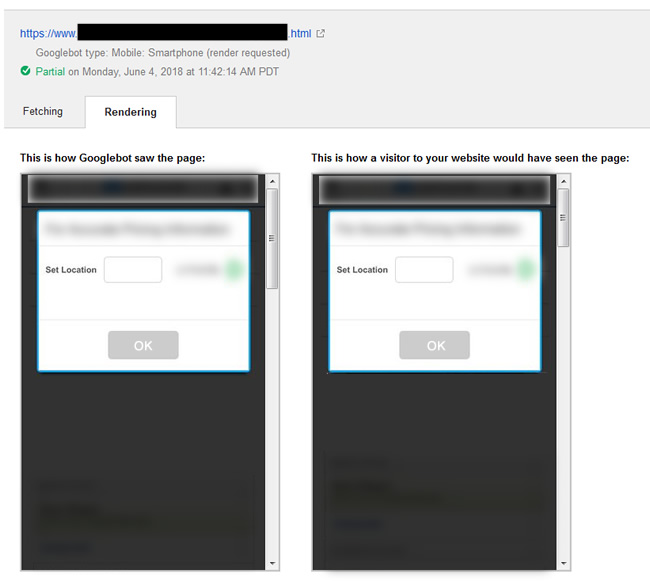
This was clearly a big problem impacting many pages across the site. I immediately created a document detailing the situation and sent it to my client. Their team is working on the situation now and some fixes have already been put into place. But I’m hearing from my client that they are facing a serious game of SEO whack-a-mole. The problem is creeping up in more places than they expected. Remember, it’s a large and complex site.

How to avoid sinister surprises like this:
If you begin auditing a large-scale site, make sure you begin checking each page type across the various sections of the site. Manually view them, check them across desktop and mobile, and then use a number of tools to analyze the situation. And make sure you check the pages via incognito mode in Chrome (to avoid cookies delivering a user experience that’s different than what Googlebot will encounter – and for first-time users).
Check the mobile-friendly test for a quick look at how Googlebot for Smartphones renders the content (which will include rendering JavaScript-based content). Then check fetch as Google in Google Search Console (GSC) using both desktop and mobile user-agents. Make sure you don’t see anything crazy like what I saw in this situation.
From a crawler perspective, crawl the site via multiple tools to get a rounded view of how the pages are being crawled and rendered. For example, Screaming Frog, DeepCrawl, and Sitebulb can all render JavaScript content now (while both Screaming Frog and Sitebulb having the ability to provide rendered screenshots). Crawl sections of the site via those tools to check the content of the rendered pages.
For example, here is Sitebulb’s “live view” feature that enables you to see a snapshot of the rendered page across desktop, tablet, and mobile. Notice the mobile popup:
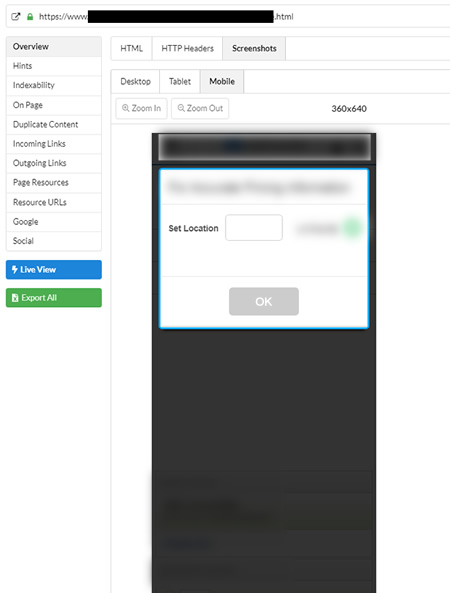
Summary – Don’t let technical problems create bigger SEO problems
If you follow the approach listed above, you can avoid sinister problems that are invisible to the naked eye (or uncookied eye). And that can help on multiple levels, including improving the user experience and SEO. Don’t let Googlebot churn through mobile popups on your site versus your top-notch content. As I explained earlier in the post, there are multiple ways those popups can hurt you. Avoid the quadruple whammy if you can. Good luck.
GG
